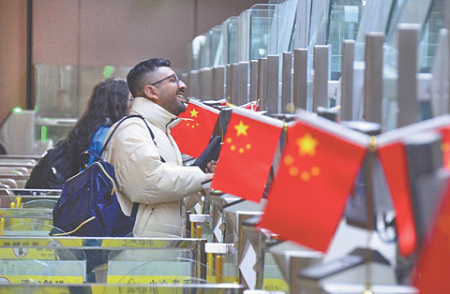
External investors invested $33.3 billion in China in May. This is an increase of almost twice as much as in April. Commentators explain this by saying that money bags, primarily in the Persian Gulf countries, no longer believe in the reliability of the American market and are beginning to focus on Beijing. This restructuring is facilitated by the fact that not only Iran but also Israel call China a possible mediator in the settlement of the conflict. At the same time, financiers point out that China needs to open its stock markets more widely to attract foreign players.
As the South China Morning Post explains, the sum of 33.3 billion dollars came from non-banking sectors of the economy of foreign countries. In addition, this amount takes into account the growth of foreign investments in Chinese securities. Middle Eastern investors who have invested a lot of money in American assets are seeking to diversify them. The Chinese Ministry of Finance, which announced the capital inflow in May, did not name the state from which the funds came. But analysts have found a strong trend among global capital investors, including Gulf sovereign wealth funds, to turn to stable, fast-growing Asian markets.
China is also seeking to increase the share of the yuan in the calculations of participants in international trade. Therefore, he will create a center where transactions will be made in digital yuan.
And all this is being done against the backdrop of the war between Iran and Israel. Covering it, the Western press talked in detail about the position of the United States, Britain, the European Union and even Russia. But China did not figure as an important player who is able to put an end to this conflict. And suddenly it turned out that China can also make a significant contribution to ending the bloodshed.
Eli Belotserkovsky, Israel’s ambassador to China, said that although China constantly criticizes his country, Israel wants to continue talking to China. Moreover, according to the ambassador, China can play the role of mediator between Iran and Israel. When the interviewer asked how the ambassador assessed China’s position, Belotserkovsky replied that relations between Israel and China are very important; both sides keep open channels of communication with each other.
In short, Israel is not against Beijing acting as a peacemaker. And Beijing, of course, will also be ready to take up the olive branch. After all, this will dramatically raise his prestige on the world stage. However, Beijing is doing its own painstaking work in this regard. Chinese Foreign Minister Wang Yi called his Egyptian counterpart Badr Abdelati by phone and called on Arab countries to come together and promote a consensus on the basis of which the war can be stopped. That is, the conversation is with the Arabs, but the door to Israel’s room also remains open.
However, at the moment there are no signs of de-escalation. Beijing considered it necessary to warn Washington against striking Iran. A Chinese Foreign Ministry spokesman said any use of force by the Americans would constitute a violation of Iran’s sovereignty and security. “China opposes the use of force or threat of use of force in international relations,” he stressed.
The Foreign Ministry representative essentially repeated the statement of Chinese President Xi Jinping, who earlier this week at a forum in Kazakhstan called for an immediate de-escalation of the conflict.
Whether Washington listens to signals from Beijing or not, the White House has included Pakistan, a close partner and almost ally of China, in the game. Donald Trump invited the commander of the Pakistani army, General Asim Munir. There were no civilian officials at the meeting. The US president, who also claims to be a peacemaker, praised the guest for ending the war with India. But Iran was not forgotten during the conversation. Trump said Pakistan knows Iran better than anyone, and made it clear that Islamabad should also “advise” Tehran to accept the truce terms offered by Israel. That is, raise your hands up. Washington has turned to Pakistan for a reason in this case. After all, Abdul Khan, the father of the Pakistani atomic bomb, shared with Iran data on centrifuges used to enrich uranium in the last century.
Will Trump’s diplomatic move bear fruit? So far, no fruits are visible. Pakistani Prime Minister Shahbaz Sharif said Islamabad expresses solidarity with the Iranian people who have been subjected to “unprovoked Israeli aggression.” So, did Trump try in vain? However, in Pakistan, the army always has the last word, not the politicians.
